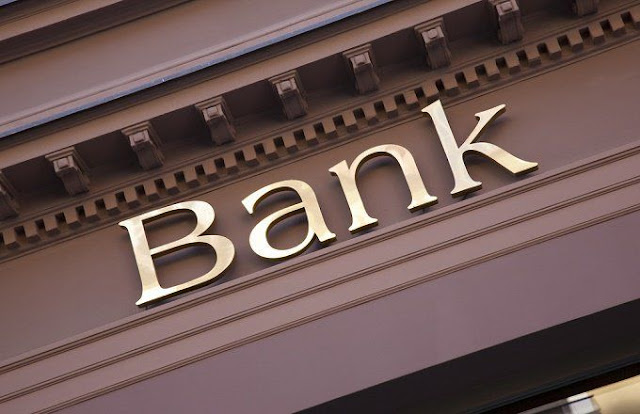A Commercial bank performs all kinds of banking business and general finances trade and Commerce. Some of the important functions of commercial banks are:
A. Primary functions:
1. Acceptance of depositsAcceptance of deposits from individuals. Organizations, firms, companies, Industries are the main function of commercial banks. Commercial banks accept deposits in different accounts. The main forms of deposit accepted by banks are as follows:
a. Current or demand deposit
The current account is maintained to facilitate traders and businessmen who have to make a number of withdrawals in a day. In the current account, there is no interest and no restriction in withdrawals. The amount deposited in this account can be withdrawn by drawing a cheque without prior information.
b. Saving deposit
The low-income people and those not needing to draw money frequently deposit their money in the savings account. Interest is provided on the deposit.
c. Fixed or time deposit
The amount deposit for a fixed period is called fixed or time deposit. Amount Deposited in the fixed account can be withdrawn after some fixed period as mentioned at the time of deposit. Generally, the rate of interest is higher in fixed deposits compared to deposits in saving accounts.
a. Launch an advance
The loans and advances are provided by the bank to individuals and institutions for various purposes. The bank provides loans only against securities like gold, silver, Government, and non-government securities which are easily marketable, stable in value in liquid.
b. Overdraft
It is similar to the cash credit agreement. Under the overdraft facility, the borrower is allowed to withdraw funds in excess of the balance in his account to a certain specified limit during a stipulated period. Interest charged on daily balances, on the amount actually withdrawn, subject to some minimum charges.
c. Cash credit
The cash credit is not based on personal security. it is provided against the Collateral of shares and debentures etc. The borrower leads to paying interest only on the actual amount taken as in overdraft.
d. Discounting of bills
the bank provides loans by discounting bills such as the bill of exchange. The bank discounts the rate of interest from the face value of the bill and allows drawing the remaining amount by cheque. This is called discounting of bills. After the maturity of the bills, the bank receives full payment of the bill.
e. Call money
It is a very short period loan made by a bank to other banks or Financial Institutions. Search launch can be called back at a short notice of one day to fourteen days.
Besides this, there are different types of loans like housing loans, hire purchase loans, personal loans, education loans, etc. provided to loanee against collateral.
B. Agency functions:
Commercial banks perform agency functions on behalf of their clients. The following are some of the agency functions done by the commercial bank.
1. Act as a representative
American banks also perform the various function as a representative of their clients. They collect cheques, commercial Bills, and provisionary notice for their clients.
2. Transfer funds
People need to transfer their money from one place to another which is also known as the remittance function. Commercial banks can charge some fee to transfer the funds with their clients.
3. Execution of standing order
Commercial banks execute the standing order of their clients. They make payments for electricity and water supply bills, insurance premiums, telephone bills as directed upon.
4. Work as Referee
The bank also what as the referee of the customers. The information on the economic condition of other persons or Institutions may be taken from the bank. But due to the need of maintaining secrecy, information is supplied only one the consent of the concerned party.
5. Income Tax consultancy
Commercial banks provide income tax consultancy to their clients in regard to the preparation of tax returns.
6. Trustee and Executor of a will
Commercial banks keep safe The Wills of their customers and execute the same after the fulfillment of the conditions mentions therein.
C. General Unity functions:
Commercial banks provide various general utility services to the people. Some of the utility functions provided by the commercial banks are presented below:
1. Travellers Cheque
Commercial banks issue traveler's cheques to help the travelers to travel without carrying cash money. A traveler's cheque is a safe means of carrying money. Travelers can use Traveller's cheque for easy and safe transaction purposes.
2. Locker facility
Commercial banks provide locker facilities to their clients. The customers can keep their valuable documents in a locker. The safety of goods and documents keep in a locker is guaranteed by the commercial banks.
3. Letter of credit
A commercial letter of credit in favor of their clients. This helps their clients to perform for reason trade.
4. Economic information in statics
Apartment of research and statics can be found in every Bank. It published monthly and annual bulletins giving information about the situation of trade, industry, rate of interest, etc.
5. Underwriting of securities
Commercial banks underwrite securities floated by businesses and industries. This helped to instill public confidence in securities.
6. Issue of gift cheques
Commercial banks also issued gift cheques of various denominations to be used on auspicious occasions.
7. Other functions
They also perform other functions such as Bank guarantee, investment, collect external and internal bills, and all government transactions, etc.

Comments
Post a Comment